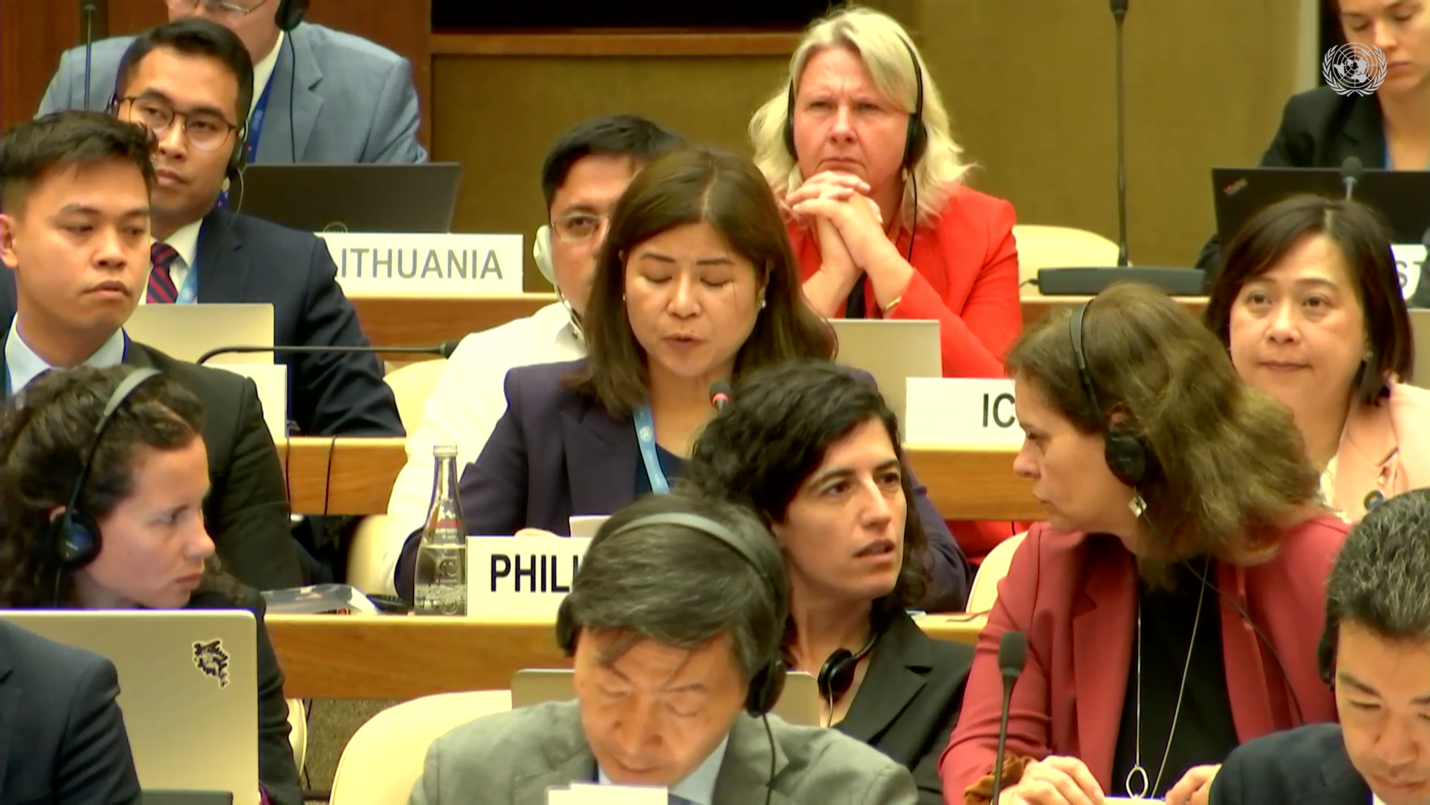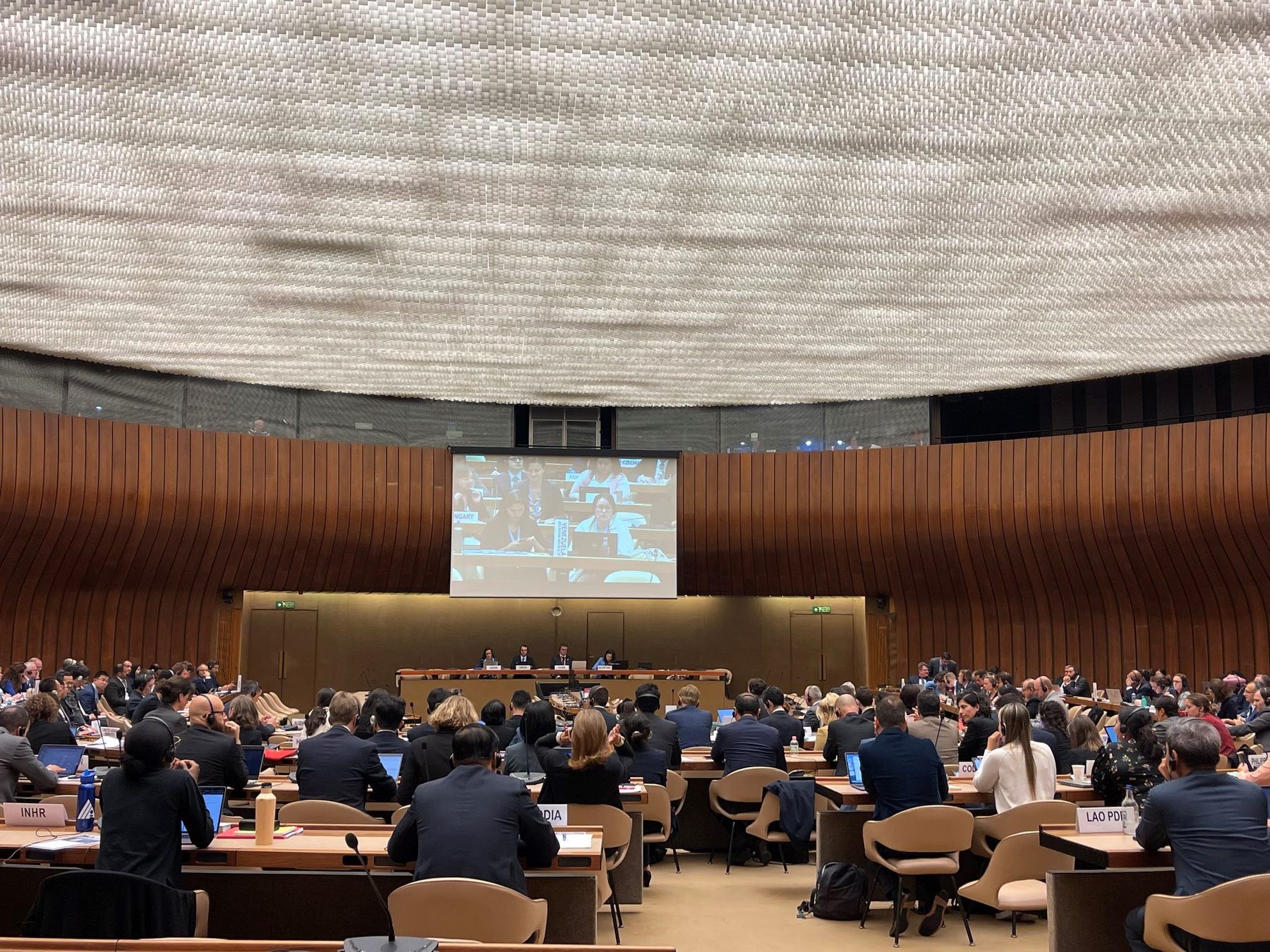
Philippines leads 33 states in calling for continuedwork on norms of responsible behavior in outer space

Deputy Permanent Representative and Minister Kristine Leilani R. Salle delivered a Joint Statement on behalf of 33 states calling for continued work on norms of responsible behavior in outer space.
GENEVA, 28 August 2023 – The Philippines led the call of thirty-three states in expressing support for the continuation of the work of a diplomatic panel created by the United Nations to address threats to outer space security.
“Work on elaborating norms of responsible behavior in outer space is a useful means towards addressing threats in outer space,” read the joint statement delivered by Philippine Deputy Permanent Representative Kristine Leilani R. Salle on behalf of thirty-three states.
“All activities by states in outer space must be carried out in accordance with international law,” the statement continued. “It is also important that such activities are conducted with due regard to the corresponding rights and interests of other states.”
The joint statement was read at the opening session of the final meeting of the said panel, which is officially called the U.N. Open-Ended Working Group on Reducing Space Threats Through Norms, Rules, and Principles of Responsible Behaviors (OEWG).
The Philippine Permanent Mission to the United Nations in Geneva drafted the joint statement and, together with the delegations of Brazil, Germany, and the Netherlands, coordinated its endorsement by thirty-three countries.

Opening of the final session of the OEWG on Reducing Space Threats Through Norms, Rules, and Principles of Responsible Behaviors (photo from UNODA Geneva twitter).
The OEWG had met three times for the past two years, during which the Philippines participated actively including through the submission of working papers.
One such working paper, entitled “The Duty of ‘Due Regard’ as a Foundational Principle of Responsible Behavior in Outer Space,” looks at how the 1982 U.N. Convention on the Law of the Sea (UNCLOS) and its jurisprudence could help guide diplomatic work on elaborating the principle of “due regard” in outer space.
Two other papers, co-authored with Germany and later on co-sponsored by Nigeria, presents an analysis of outer space security threats and possible recommendations to address them.
These recommendations include avoiding debris-creating anti-satellite missile tests, addressing misconceptions from rendezvous and proximity operations, protecting civilian infrastructure including those used for humanitarian missions and climate change adaptation purposes, and instituting mechanisms for notification of rocket launches.
In recent years, debris falling from rocket launches have fallen on Philippine territory, posing hazard to communities.
The Philippines’ active participation in the OEWG is consistent with President Ferdinand R. Marcos, Jr.’s call on the international community to develop norms of responsible behavior in outer space, which he made at the United Nations General Assembly last year. END
